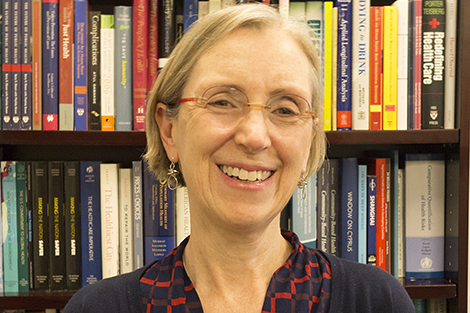Cancer prevention strategies save lives. Let’s put them to work.

Karen Emmons, Professor and Dean for Academic Affairs at Harvard T.H. Chan School of Public Health
Karen Emmons, Professor and Dean for Academic Affairs at Harvard T.H. Chan School of Public Health and an expert in cancer prevention interventions, says that knowledge we already have about ways to prevent cancer is not being used as effectively as it could be. Emmons and Graham Colditz of Washington University wrote about the issue in a recent NEJM opinion piece.
Research suggests that more than half of cancers could be prevented by applying knowledge we already have. Can you give an example or two of how strong evidence regarding cancer prevention is not being used effectively?
There are several different strategies that are effective at preventing cancer. Some approaches are medical — such as screening or vaccination. Others are environmental or policy based, aimed at reducing risky behavior and increasing access to treatment as well as increasing uptake of healthy alternatives.
The HPV vaccine is a great example of a medical strategy. There is strong evidence that the vaccine prevents cervical cancer. However, in the U.S. only 42 percent of girls and 28 percent of boys have received it. This contrasts with Australia, which provides the vaccine free to all women ages 12–26 and recommends vaccination for boys. As a result of this national approach, 77 percent of girls and 67 percent of boys in Australia are vaccinated by age 15. And within three years of implementing the HPV vaccination program, dramatic reductions in cervical lesions were documented, and this trend has continued over time.





